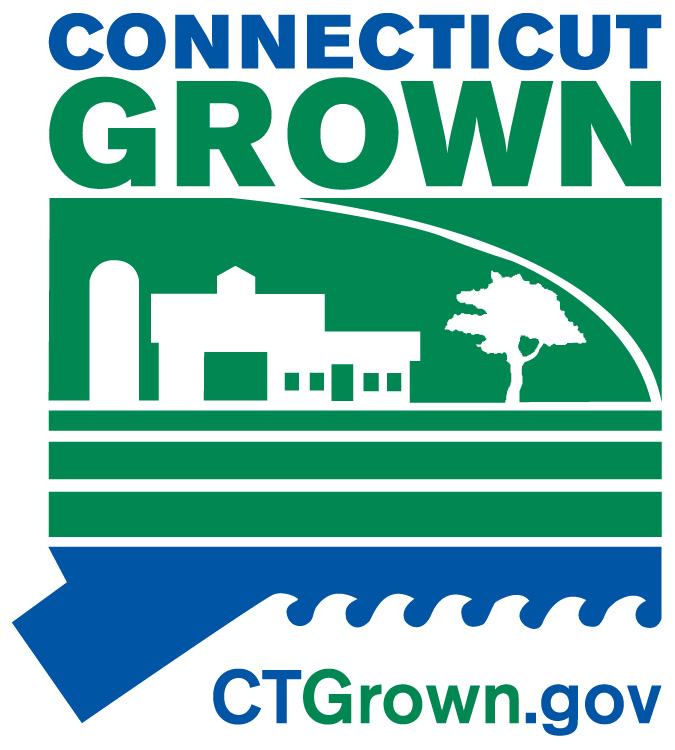
New Connecticut law requires that all products at farmers’ markets offered as Connecticut Grown be identified by a sign listing the name and address of the farm where the item originated.
Inspectors have issued nearly 50 warnings to growers and vendors that were found in violation of the law, which requires that all products at farmers’ markets offered as Connecticut Grown be identified by a sign listing the name and address of the farm where the item originated.
The Department offers free price cards bearing the Connecticut Grown logo and space to list the farm’s name and address to anyone selling at the approximately 130 certified farmers’ markets statewide, where sale of out-of-state produce is prohibited.
Growers are also allowed to make their own signs. Most of the warnings were issued because cards or homemade signs were marked with an item’s price, but did not contain the farm’s identifying information.
In some cases, inspectors learned that products being offered were grown at a different Connecticut farm that the one selling the items.
“We know that the overwhelming majority of farmers at our markets are selling items they worked hard to grow or produce themselves and are proud to use the Connecticut Grown logo to promote them,” Agriculture Commissioner Steven K. Reviczky said. “This law is simply designed to help ensure that everyone selling at a farmers’ market is playing by the same rules, and so that the consumer is not only assured they are buying Connecticut Grown, but are informed specifically where the item was produced.”
Enacted October 1, 2015, Public Act 15-245, AN ACT CONCERNING THE SALE OF FARM PRODUCTS AS "CONNECTICUT-GROWN," also requires anyone selling a claimed Connecticut-grown farm product at a farmers' market to do so in the “immediate proximity” of the identifying Connecticut Grown sign.
That was a point of confusion for some growers, who believed that the law would be met if their display booth at a farmers’ market contained a sign bearing their farm’s name, with no further identification on price cards for individual products.
A farm’s sign would meet the requirements of the law if it bore a statement that all products being sold under the farm’s name and address were of Connecticut origin.
“Our intent this season was to educate growers rather than impose fines,” said Dr. Bruce Sherman, who as Director of the Dept. of Agriculture’s Bureau of Regulation and Inspection oversaw the inspections, which are ongoing and will continue during the winter market season. “But by next year we would expect that anyone selling at a farmers’ market will be aware of the law and in compliance with it.”
Market masters at all certified farmers’ markets were supplied with information about the law.
“We enforce it and I go around every week and do a circuit to see if anyone is selling anything suspicious,” said Doug Sacks, master of the Wethersfield Farmers’ Market, said at the market last week. “We have a really good group here and so far we have not had any problems.”
Still, a tour of the market showed that several growers were not properly labeling their products with the farm of origin’s name and address.
One grower that was in full compliance with the law was Christine Whitney of Phoenix Farms in Cromwell. Her baskets of peppers and squash and other items all bore Connecticut Grown price cards bearing the farm’s name and address.
“We’re proud of what we grow and we believe people need to know where it comes from,” she said. “It’s pretty simple. And if you’re selling somebody else’s product from Connecticut you should be proud of that too.”
Inspectors said some growers may have not filled out price cards or signs because they are reluctant to advertise that they are selling Connecticut Grown products from another farm to supplement their offerings.
“There are very few businesses that are as unpredictable as farming,” Reviczky said. “So it is important that farmers support other farmers and we encourage that practice. The bottom line that you don’t have to grow everything yourself, but what you sell has to be Connecticut Grown and it has to be labeled properly. I strongly believe that the Connecticut Grown logo adds value to products and the only way to protect that is to ensure the logo has absolute integrity.”